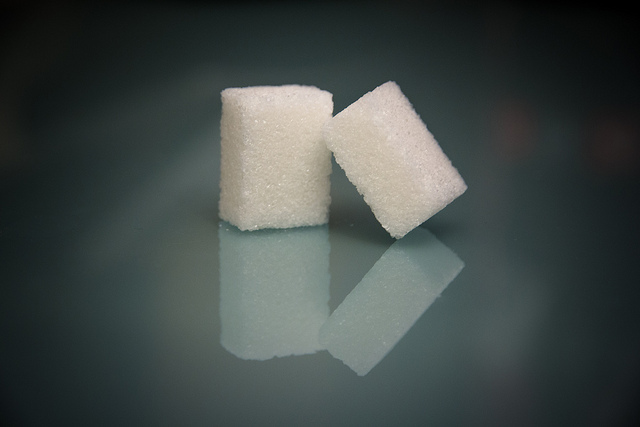Sugary Science at Helena High
https://flic.kr/p/gNbTmV
January 9, 2019
For two and a half weeks in December, students and members of the community participated in student-organized research projects. The class behind the project, Biomedical Innovations, teaches others students learning about the scientific method, informed consent, and what goes into medical research. One project in particular stuck out to many. Morgan Oie, a senior and biomed student at Helena High, decided to focus her research on the effects of sugar on the body and brain. “I decided to do this experiment because it’s pretty relevant today, since most of America consumes way more sugar then they should” Oie said. For a 2,000 calorie diet, 25 grams of sugar is a healthy amount yet the average American consumes around 72 grams per day. Cumulatively that’s 57 pounds of added sugar per year.
The experiment, which ran from December 4th to December 21st, had participants cut out all added sugars from their diets. The experiment hoped to see improvement in overall mental and physical health. This seems like an easy way to see an improvement in health, but it has its challenges. Over the course of the experiment, participants dealt with cravings, withdrawals, and the fact that most food today contains some amount of added sugar. Jasmine Wilkerson, a senior and a participant, said that the hardest parts were finding snack foods that don’t contain sugar, and how poorly she felt in the first few days. These withdrawal symptoms are typical when we give up sugar, as sugar is a stimulant that our body can become addicted to. With the amount of sugar most people consume, it’s hard to ignore the fact we suffer from this hidden and harmful addiction. Along with this, added sugar can lead to poor nutrition, heart disease, and weight gain. With these in mind, it’s easy to see the benefits of reducing our consumption of added sugar. “I’m hoping (the experiment) shows that a diet free of sugar makes a huge impact on your health. I’m looking at weight and BMI… as well as complexion, mental health, and body image,” Oie stated.
For the trial she used surveys ranking each condition one (bad) through five (excellent). “I’m hoping to see those numbers go up (from the beginning to the end) of the trial,” Oie continued. From the participants interviewed, it seems as if her hypothesis was correct. Wilkerson claimed that she had lost weight, her stomach felt better, and it was helpful for her self image. Janell Swanson, a senior, said the absence of added sugar helped her mental health and helped curb her appetite for unnecessary food.
Although the study only ran for two weeks, a relatively short time period for a medical research project, Oie believed that the little time would still lead to big changes in health: “I think people will notice right away what happens (without sugar), and then it will get more steady as the study goes on.”
Many things were learned from this by both researchers and subjects, and it wasn’t just data. Oie, who participated in her own project, said she had much energy than beforehand, and that the study helped her to realize how prevalent sugar is in our everyday foods. Both Wilkerson and Swanson said that their sugar-free time helped them to recognise the importance of moderation. Wilkerson added that it had helped her realize the importance of homemade meals, where you can limit the amount of sugar. Along with this, all three would consider a sugar-free diet again.
Oie hoped that the study would teach subjects and students the importance of being cognizant of what they’re eating, and how much of an impact our use of added sugars has on our bodies and brains.


